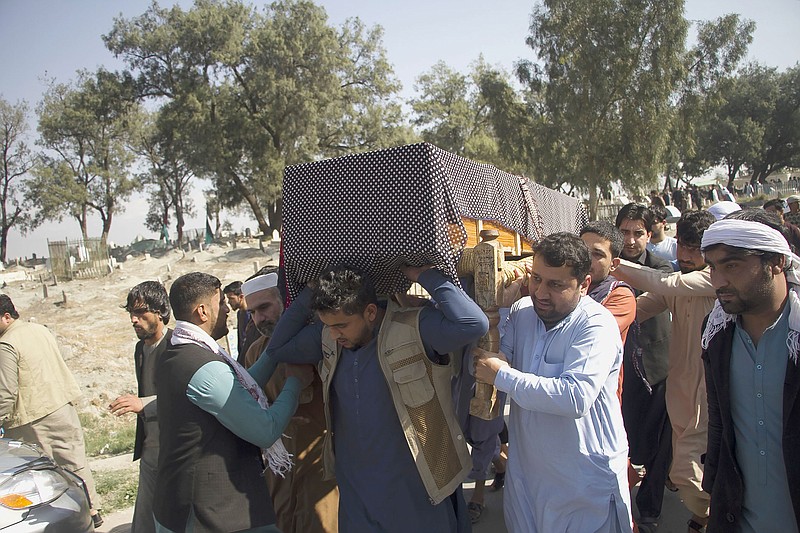KABUL, Afghanistan -- The coordinated killings of three female journalists were the latest in a bloody campaign against journalists in Afghanistan. In just the past six months, 15 journalists and media workers have been killed.
The killings have spread fear among Afghanistan's journalist community, prompting some to stop working or flee or self-censor to avoid angering militants or government officials, who have threatened journalists reporting on killings of civilians by government forces.
The fear is even worse because the perpetrators remain mysterious, a sign of the country's fracturing security situation even as peace negotiations try to gain a foothold. Judges, lawyers and activists have also been targeted in a wave of assassinations since Washington signed a peace deal with the Taliban a year ago.
The Islamic State group has claimed responsibility for some of the attacks, including Tuesday's slayings of the three women, Mursal Wahidi, 21; Sadia Sadat, 21; and Shahnaz Raufi, 20. But many others have gone unclaimed. The government blames most on the Taliban, trying to undermine the group's support among Afghans. The Taliban deny any role and blame the government for the slayings, saying it wants to undermine the peace process.
[Video not showing up above? Click here to watch » https://www.youtube.com/watch?v=vYBV-cu9LJg]
Zabiullah Doorandish, who works for a TV channel in Kabul, said false information flying around, including from the government, only fuels speculation. Some "start to think maybe there are groups inside the government that are targeting media," he said. Some armed groups are connected to officials, but no one has put forward evidence they have a role in killings.
Doorandish, who often covers corruption, violence and human-rights violations, was targeted by a roadside bomb attack in May. He survived, but two colleagues were killed. Now he's afraid every time he steps out of the house, he said.
He said he gets death threats, some claiming to be from the Taliban, but others unknown. The threats, he said, prompted him to put aside for now a documentary he was preparing about the killings of journalists.
"Whenever I cover some incident, an explosion or attack, I am filled with fear and panic," said Doorandish, a father of two.
On Wednesday, funerals were held for the three women, who worked for Enikass Radio and TV in the city of Jalalabad. They dubbed popular and often emotion-laden dramas from Turkey and India into Afghanistan's languages of Dari and Pashtu. In December, the Islamic State claimed the killing of another female employee at the station, Malala Maiwand.
Wahidi's father said he had implored her to quit her job after Maiwand's killing, but she refused, fiercely loving her work.
"Journalism was her life's dream, she studied and was living her dream," Wahidullah Khogyani said. He said he did not think that she had received any threats -- but if she did, "she was hiding it."
The aftermath of the killing underscored the government's credibility problem.
Afghan officials claimed they arrested the killer of the three, identifying him as Qari Baser and insisting he was a Taliban. Police did not explain how the man could have carried out two near simultaneous attacks so far apart.
Hours after the killings, the Islamic State group said that it killed the women because they worked for one of the "media stations loyal to the apostate Afghan government." Taliban spokesman Zabihullah Mujahid denied the group had any role.
Afghanistan has over 2,000 officially registered media outlets. Violence against journalists was up 26% in 2020 compared with 2019, according to the Afghan Journalists Safety Committee, which recorded 132 threats and acts of violence against journalists and media workers last year.
Attacks against the media have been countrywide.
Last month in northern Afghanistan, the former head of a journalist association was killed and in western Ghor province a journalist and his family was killed.
Information for this article was contributed by Rahim Faiez and Maamoun Youssef of The Associated Press.







